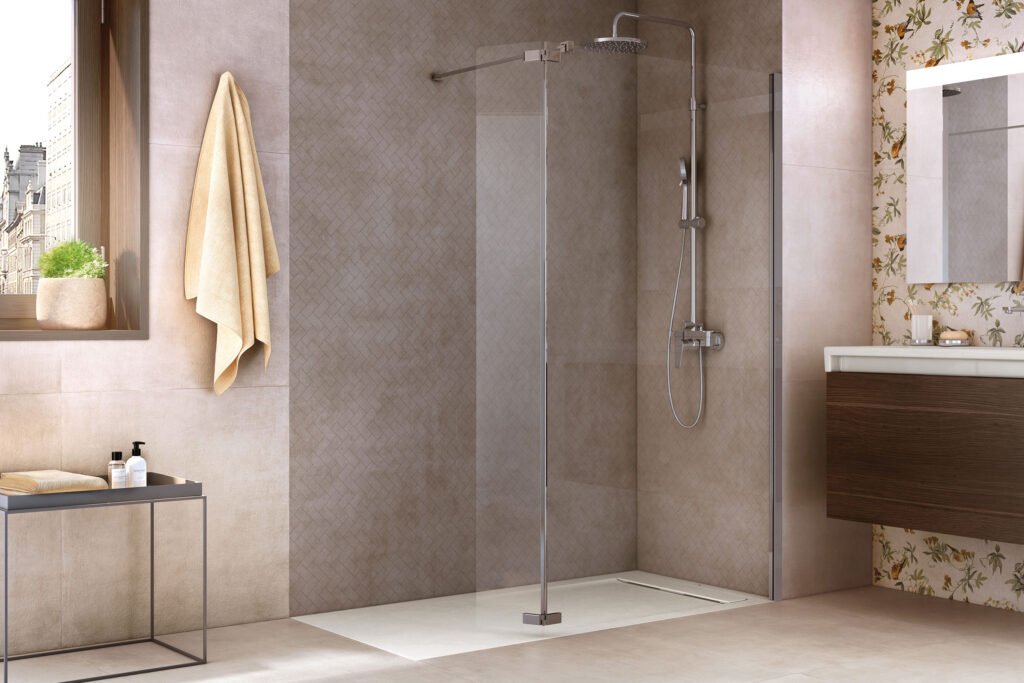The devil is in the details when it deals with bathroom design. The shower tray is essential to a well-designed bathroom, yet it is often disregarded. Shower trays not only serve as a practical basis for your shower but also add much to the aesthetic value of your bathroom. This article will take you on a journey into the fascinating subject of shower trays, explaining their function and how they may improve your bathroom.
How to Make Sense of Shower Trays
A shower enclosure is complete with a shower tray base or pan. They’re made to soak up moisture and send it down a drain, keeping your lavatory dry and risk-free. You may choose a tray that fits your bathroom’s aesthetic and functional needs among the various sizes, forms, and materials available.
Substance Is Crucial
It’s essential to consider the shower tray’s material before purchasing. There are benefits and drawbacks to using different materials. The following are some typical supplies for shower bases:
Shower trays made of acrylic are both lightweight and inexpensive. Their low cost and low maintenance requirements make them popular among many homeowners. Acrylic trays may be purchased in various hues and designs to complement your bathroom accessories.
Shower trays made of stone resin are long-lasting and elegant. They have a stellar reputation for durability and imperviousness to breakage. These trays can also be altered to meet your requirements.
Shower trays made of ceramic are an enduring and stylish option. Their low upkeep requirements make them a sensible choice for homes with active members. You may get various sizes and forms of ceramic trays to accommodate any bathroom design.
Shower trays made of steel are among the most long-lasting options available. They are durable enough to endure repeated washings with harsh detergents and other cleaning agents. These trays are an excellent choice for public restrooms.
Picking the Appropriate Form and Measurement
Consider the shower tray’s dimensions and form when planning your bathroom layout. The ideal tray would only draw a little attention to itself but instead fit in with the rest of your bathroom’s decor. Size and shape are essential, so here are some things to think about:
Depending on how much room you have in your bathroom, you may need to have a custom-sized shower tray. Ensure it doesn’t take over the room and that there’s enough room for people to walk about.
Think about the shower enclosure you want to install and make your selections accordingly. Corner enclosures naturally fit rectangular trays, whereas quadrant trays can be used with curved pieces. The section must work with the tray.
To make your bathroom more accessible, think about getting low-threshold shower trays. These trays, explicitly created for those with mobility issues, can make your bathroom more accessible.
Creative Arrangements
Modern shower trays are made to do more than protect your bathroom floors; they are works of art. The shower area may be the new focus point of your bathroom, thanks to the many manufacturers that provide cutting-edge designs. Some common layout choices are as follows:
Shower trays with textured surfaces are an easy way to upgrade the look of your bathroom. In addition to looking great, they also include a non-slip sole to keep you from sliding about. Various finishes are available, including some that look like stone or wood.
Some manufacturers provide you the option of choosing a shower tray colour that best complements the decor of your bathroom. You may match the style of your tray to the rest of your home using this customisation feature.
Tileable shower trays are made to be tiled over so you can match the rest of your bathroom’s tile design. This produces an aesthetically attractive, uniform appearance.
Repairs and Tidying Up
The cleanliness of your shower tray is essential for both health and aesthetics. Fortunately, most shower trays require little in the way of upkeep. Some suggestions for preserving the condition of your shower pan:
Maintaining a clean shower tray by regularly wiping it down with a mild bathroom cleaner can keep it free of soap scum and mineral buildup. Cleaning products that are too abrasive should be avoided.
Water can infiltrate beneath the tray if the connections between the tray and the walls or tiles aren’t properly sealed. In doing so, the tray’s structural integrity is preserved, and water damage is avoided.
Do not use chemicals or abrasive cleaners on the tray’s surface, which might cause permanent harm. Use only nonabrasive cleaners and soft towels.
Conclusion
A shower tray may enhance your new bathroom’s cosmetic and practical value. Various alternatives are available to fit your taste and preferences, from traditional ceramic trays to contemporary textured designs. Think carefully about your shower tray’s dimensions, form, and material and the care it will need to last for years to come. Shower trays with cutting-edge designs may significantly improve the visual attractiveness of your bathroom.
